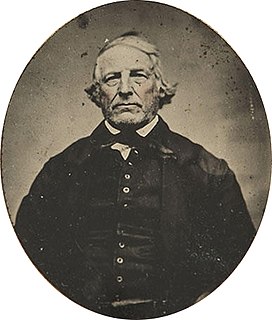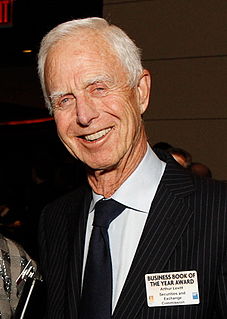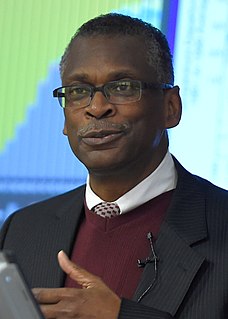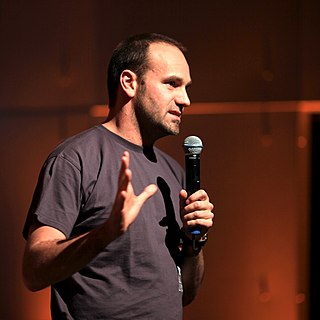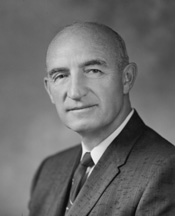Top 1200 Health Insurance Companies Quotes & Sayings - Page 16
Explore popular Health Insurance Companies quotes.
Last updated on November 18, 2024.
When you pay a hospital bill, you're really paying two hospital bills - one bill for you because you have a job and/or insurance and can pay the hospital. and another bill, which is tacked onto your bill, to cover the medical expenses of someone who doesn't have a job and/or insurance and can't pay the hospital.
The question for so many is the quality of work, the future of work under globalism and de-industrialization. A typical example is a person who had a good factory job making 80,000 dollars, with health insurance, who was able to send his kids possibly to college and then he or she suddenly loses that job because the factory closed down. And now that same person is bagging groceries at Walmart and making $35,000.
When I care about something, I care about something. I think I have an obligation as an American to - and as a citizen, as - as a human being, to help others. Smoking is going to kill a billion people this century. I've put six hundred million dollars from my own money into trying to stop the tobacco companies from getting kids to smoke and convincing adults that it's not in their health.
Britain, with the most completely socialized health system in the West, now spends the lowest fraction of GNP on health care of any major nation. There are frequent complaints of excessive waits for elective surgery and other inconveniences, but British citizens live slightly longer than Americans, on average, and our overall health conditions are comparable.
To improve global health, it's not enough just to have a really good new product and to obtain marketing approval. You still need to market the product and bring it to patients, follow up, create the infrastructure, and so on - the whole pipeline, the network. That's something that companies are extremely good at: organizing a whole pipeline in a cost-effective way.
On the information technology side, health care is still behind other industries. There needs to be a real push to create better electronic health records, more inter-operability amongst various types of electronic systems and cybersecurity is becoming a huge deal in in health care. Health care records are highly sought after by virtue of the fact that not only do you have somebody's person financial information, you also have their person medical information.
On one hand we encourage and allow major pharmaceutical companies to openly hook vast sectors of our population on narcotics, and then we cut them off and throw them in jail, and moralize about it. It is clearly a huge, huge, and growing problem. It's devastating. We need to treat it as a health crisis, which it is, and stop moralizing.
Medicine is the science by which we learn the various states of the human body in health and when not in health, and the means by which health is likely to be lost and, when lost, is likely to be restored back to health. In other words, it is the art whereby health is conserved and the art whereby it is restored after being lost. While some divide medicine into a theoretical and a practical [applied] science, others may assume that it is only theoretical because they see it as a pure science. But, in truth, every science has both a theoretical and a practical side.
In my view, this is not extremism on the left. This is what the American people support in poll after poll. Support the right to a job. Support living wages. Support real climate action. Support small community-based banks that make loans available to every day people and small businesses, not these too-big-to-fail banks that rip us off, that crash the economy at taxpayer expense. Support a public-option healthcare system, not Obamacare, which has been a boondoggle for insurance and pharmaceutical companies.
Hillary Clinton has a long track record of service in public life. And you can look at that. I tell the story about her being first lady of the United States, when the effort to get Hillary Clinton done failed, and that was a tough, tough, bitter loss, but then it tested her as a leader. And she worked together with Democrats and Republicans to get health insurance for eight million low-income American children in the CHIP program.
I intend to talk about race during this election in the South because the Republicans have been talking about it since 1968 in order to divide us. And I'm going to bring us together. Because you know what? You know what? White folks in the South who drive pickup trucks with Confederate flag decals in the back ought to be voting with us and not them, because their kids don't have health insurance either and their kids need better schools too.
The Superfund legislation set up a system of insurance premiums collected from the chemical industry to clean up toxic wastes. This new program may prove to be as far-reaching and important as any accomplishment of my administration. The reduction of the threat to America's health and safety from thousands of toxic-waste sites will continue to be an urgent but bitterly fought issue-another example for the conflict between the public welfare and the profits of a few private despoilers of our nation's environment.
WHO has a country office in nearly every developing country, usually located close to the Ministry of Health. Staff in these offices need to do much more to help ministries of health strengthen their national health plans and strategies and then negotiate with development partners to support these priorities and follow these plans.
This program could destroy private initiative for our aged to protect themselves with insurance against the cost of illness....Presently, over 60 percent of our older citizens purchase hospital and medical insurance without Government assistance. This private effort would cease if Government benefits were given to all our older citizens.
I see "demand creation" as a 20th-century construct that's bound up with advertising. It's an outmoded view of marketing that says, "First, we build a product or service, then we advertise it into people's lives." Embedded this view is the belief that companies control brands. This is a myth. My message all along has been that brands are actually created by customers, not companies. Companies only provide the raw materials - the products, messaging, behaviors - that people use these to create brands.
Preserve the core, and let the rest flux. In their wonderful bestseller Built to Last, authors James Collins and Jerry Porras make a convincing argument that long-lived companies are able to thrive 50 years or more by retaining a very small heart of unchanging values, and then stimulating progress in everything else. At times "everything" includes changing the business the company operates in, migrating, say, from mining to insurance. Outside the core of values, nothing should be exempt from flux. Nothing.





























